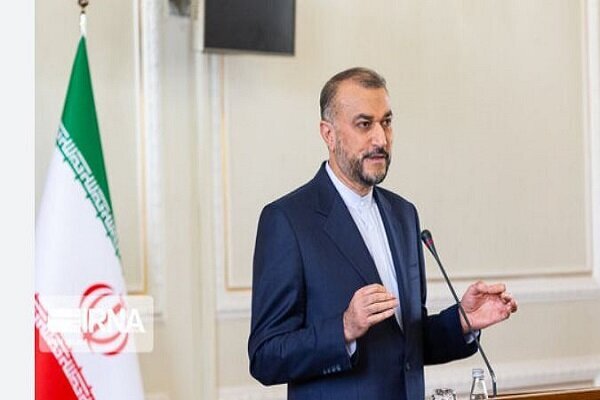We will not recognize Taliban, Iran’s FM says

TEHRAN – Iran’s Foreign Minister Hossein Amir Abdollahian said on Thursday that Iran will not recognize the Taliban and that the Islamic Republic insists on an inclusive government in Afghanistan.
“We will not recognize the current rulers of Afghanistan and insist on the need to establish an inclusive government in Afghanistan,” Amir Abdollahian told an annual gathering of Iranian diplomats in the shrine of Imam Khomeini.
He added, “The Taliban is part of the reality of Afghanistan but not all of Afghanistan.”
“Afghanistan is an important issue for us. We are unpleased that an inclusive government has not been formed in Afghanistan and we have announced this to the current rulers of Afghanistan,” the foreign minister explained.
The foreign minister went on to say that Iran has long borders with Afghanistan and “there is no option other than interaction between the two countries.”
Amir Abdollahian also said Iran does not like an incident similar to the one that happened in Mazar-i-Sharif in late 1990s to emerge again.
On August 8, 1998, Taliban forces captured Mazar-i-Sharif and killed 11 Iranian diplomats and a journalist.
The sporadic clashes that have happened in border areas during the past months are a “source of concern,” the foreign minister pointed out.
“We want to help the process of realizing peace and security in Afghanistan and in return see reciprocal expectations from the current rulers of Afghanistan,” he noted.
Elsewhere in his remarks, the foreign minister said Iran is “unhappy that girls and women” in Afghanistan have been denied to study school and university and considers such a behavior “in opposition to the teachings of the holy prophet of Islam.”
The minister also pointed to Iran’s water rights from the Helmand River and said Iran has held talks with officials of Afghanistan in this regard and “we believe that this issue should be investigated in a legal framework based on the 1973 treaty.”
Based on the 1973 treaty Iran should annually receive 820 million cubic meters of water from the Helmand River.
Afghanistan has redirected the course of the river and built dams on its path. Hassan Kazemi Qomi, Tehran’s special envoy for Afghanistan, has said Iran just receives 4 percent of the water.
The move has caused the Hamoun wetland in the border province of Sistan-Baluchestan province to dry up. The lives of a large percentage of the people in the neighborhood is dependent on the river. It is a source of drinking water and irrigation. The livelihood of fishermen is also dependent on the lake.
Amir Abdollahian said the issue of Iran’s water rights will not be resolved through declaration of “political statements.”
